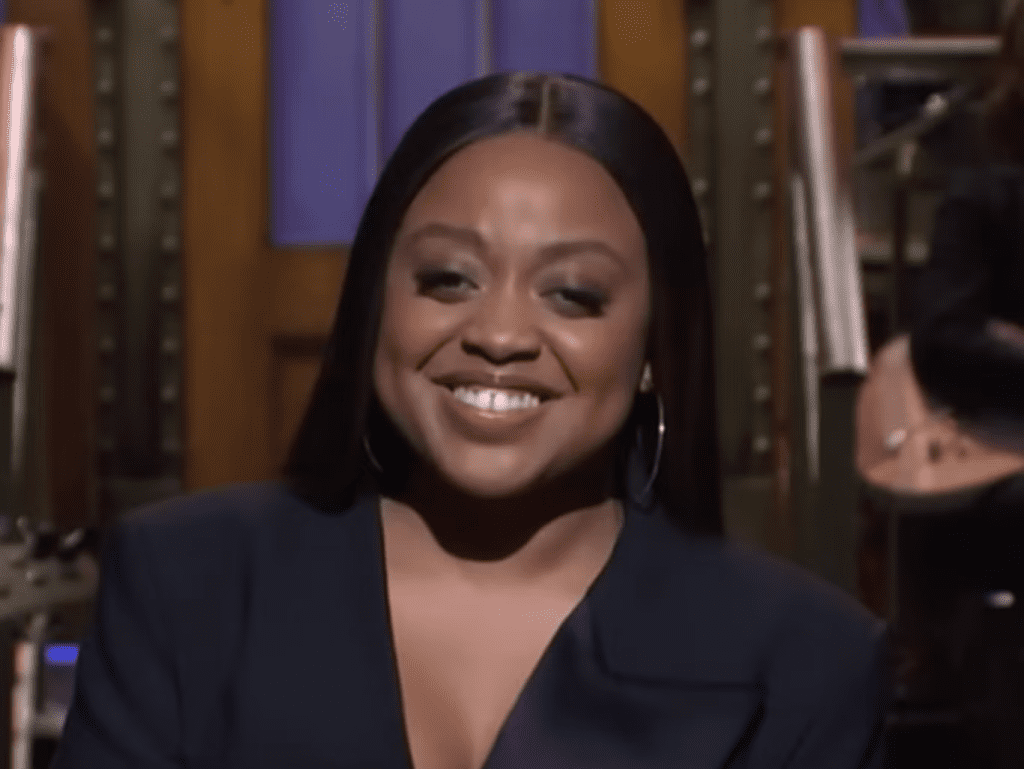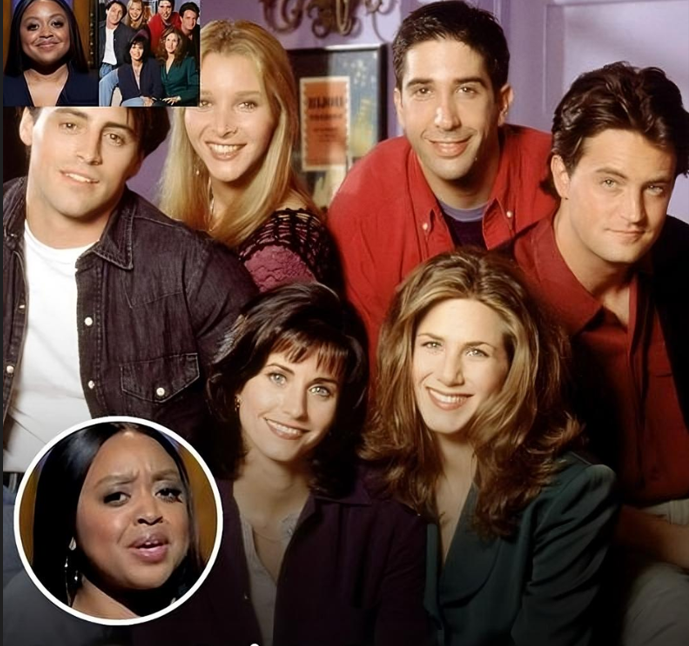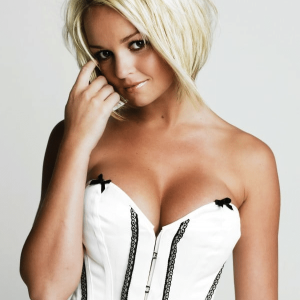Quinta Brunson, the Emmy Award-winning creator and star of the hit series Abbott Elementary, recently stepped into the spotlight as the host of Saturday Night Live (SNL). During her highly anticipated opening monologue, Brunson delivered a scathing yet powerful critique comparing her show to the iconic 90s sitcom Friends. Her pointed comments about diversity, or the lack thereof in Friends, sparked a viral conversation that resonated with audiences and highlighted the importance of authentic representation in television.
A Comparison That Hit Home: Brunson’s Bold Statement on Diversity

Quinta Brunson kicked off her monologue by humorously introducing Abbott Elementary as a typical network sitcom, much like Friends. However, she swiftly pointed out a stark difference: “Instead of being about a group of friends, it’s about a group of teachers. Instead of New York, it’s in Philadelphia. And instead of not having Black people, it does.”
This pointed jab at Friends’ well-known lack of diversity drew thunderous applause from the audience, striking a chord with viewers who had long critiqued the 90s sitcom for its glaring omission of racial diversity. Brunson’s remark was more than a clever punchline; it was a reflection of the significant disparities in representation that have long plagued mainstream television.
The Long-Standing Criticism of Friends
Friends has been one of the most beloved and successful sitcoms in television history, but its success has not been without controversy. For years, critics and viewers alike have pointed out the show’s failure to depict the diverse makeup of New York City, a place celebrated for its multiculturalism. Despite its setting in one of the most diverse cities in the world, Friends largely revolved around an all-white cast with only a handful of guest appearances by people of color throughout its 10-season run.
This lack of diversity has long been a talking point in discussions about the show’s legacy. While the humor and storylines resonated with millions, the absence of Black characters and other people of color has been a glaring flaw in an otherwise beloved series. Quinta Brunson’s direct comparison to Friends on SNL reignited this conversation, reminding viewers that diversity in television still has a long way to go.
Marta Kauffman’s Acknowledgment of Friends‘ Flaws
In recent years, Friends co-creator Marta Kauffman has publicly acknowledged the criticism surrounding the show’s lack of diversity. In a 2020 interview, Kauffman admitted it took her years to fully grasp the implications of the show’s casting choices. She reflected on how she had internalized systemic racism and expressed regret over not pushing for more inclusive storytelling at the time.
In a move to make amends, Kauffman donated $4 million to fund an endowed chair for the African and African American Studies Department at Brandeis University, her alma mater. This action was a public acknowledgment of the importance of promoting diversity and inclusion in both academic and media spaces.
While this gesture was praised by many, the conversation about Friends continues, especially in the light of new shows like Abbott Elementary, which are celebrated for their authentic portrayal of diverse communities.
How Abbott Elementary Succeeds Where Friends Fell Short
In stark contrast to Friends, Abbott Elementary has been lauded for its accurate and heartfelt depiction of a predominantly Black school and its diverse cast of characters. Set in an underfunded Philadelphia public school, the show shines a spotlight on the trials and triumphs of dedicated teachers who reflect the communities they serve.
The characters on Abbott Elementary are complex and multi-dimensional, offering viewers a refreshing and authentic narrative that embraces diversity rather than avoiding it. Brunson’s portrayal of both teachers and students in this school not only reflects the realities of many inner-city schools but also resonates with audiences who have long craved more inclusive storytelling on television.
Brunson’s SNL monologue served as a reminder that while shows like Friends may have dominated television screens in the past, today’s viewers demand greater representation and authenticity in the stories they watch.
The Viral Impact: Social Media Applauds Brunson’s Candid Critique
Brunson’s SNL monologue quickly went viral, with social media platforms lighting up with praise for her bold and candid critique. Fans and viewers applauded her for addressing a long-standing issue in Hollywood— the lack of diversity in many classic television shows— and for her commitment to creating a show that breaks that mold.
Her comments struck a chord with those who have felt excluded by mainstream media’s limited portrayal of race and culture. Social media buzzed with discussions about how far television has come in terms of diversity, but also how much further it needs to go. Brunson’s ability to use her platform to spark a meaningful conversation underscored her influence as both a creator and an advocate for change.
Why Representation Matters in Today’s Television Landscape

Brunson’s comparison between Abbott Elementary and Friends highlighted a crucial point: representation matters. For decades, television shows with all-white casts dominated prime time, marginalizing people of color and their stories. However, in today’s entertainment landscape, viewers demand more authentic and inclusive representation.
Shows like Abbott Elementary provide a platform for underrepresented voices and allow viewers from all backgrounds to see themselves reflected on screen. Representation goes beyond simply having diverse characters; it involves telling stories that genuinely resonate with people’s lived experiences. By creating a show centered on Black teachers in an underfunded school, Brunson brings attention to issues that have historically been ignored by mainstream media.
Quinta Brunson: A Powerful Voice for Change in Hollywood
As both the creator and star of Abbott Elementary, Quinta Brunson has quickly become a rising star in Hollywood. Her success at the Emmy Awards and her influential platform on SNL have solidified her as a trailblazer in the entertainment industry. But beyond the accolades and the viral moments, Brunson’s work is a testament to her commitment to driving meaningful change.
By calling out the shortcomings of iconic shows like Friends, Brunson is pushing the industry to confront its history of exclusion and to strive for a future where diversity and inclusion are the norm, not the exception. Her willingness to challenge the status quo and create a space for underrepresented stories makes her a powerful advocate for change in Hollywood.
Conclusion: Brunson’s Call for Inclusive Storytelling Is Just the Beginning
Quinta Brunson’s SNL monologue was more than just a moment of humor; it was a rallying cry for a more inclusive television landscape. By contrasting Abbott Elementary with Friends, Brunson shed light on the importance of representation and the power of telling diverse stories that resonate with today’s audiences.
As the entertainment industry continues to evolve, creators like Brunson are leading the charge for greater diversity in front of and behind the camera. Her commitment to challenging the status quo and pushing for more inclusive storytelling ensures that shows like Abbott Elementary pave the way for a future where everyone’s story can be told.


